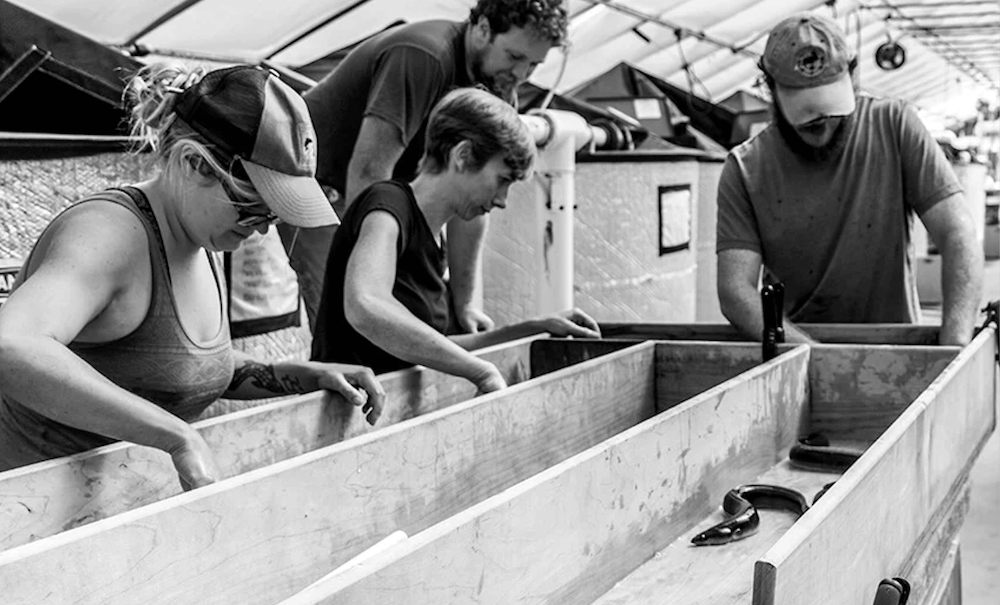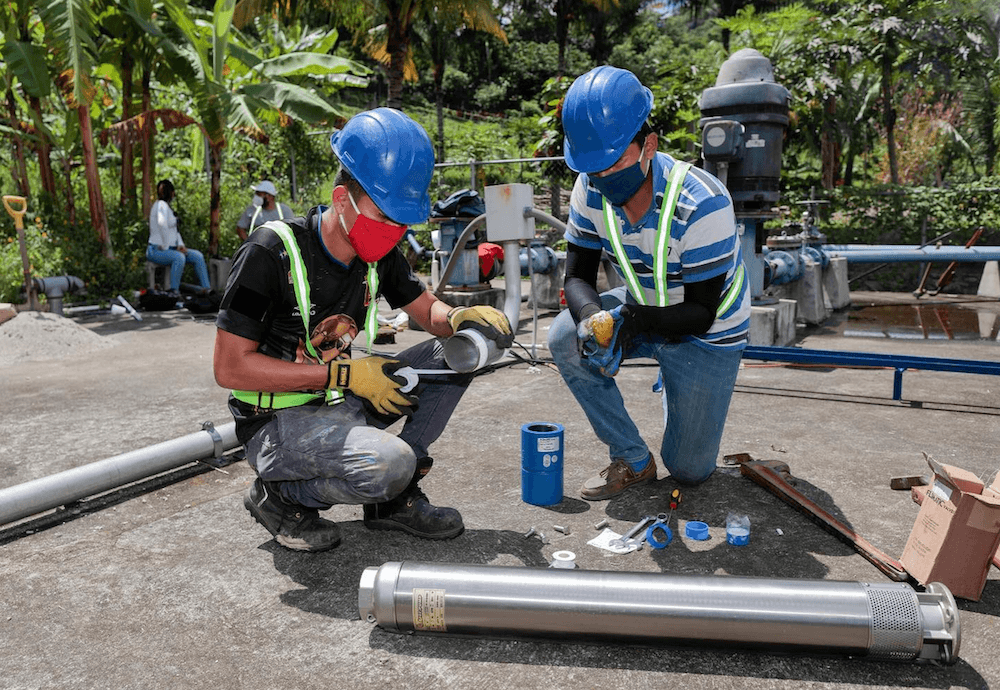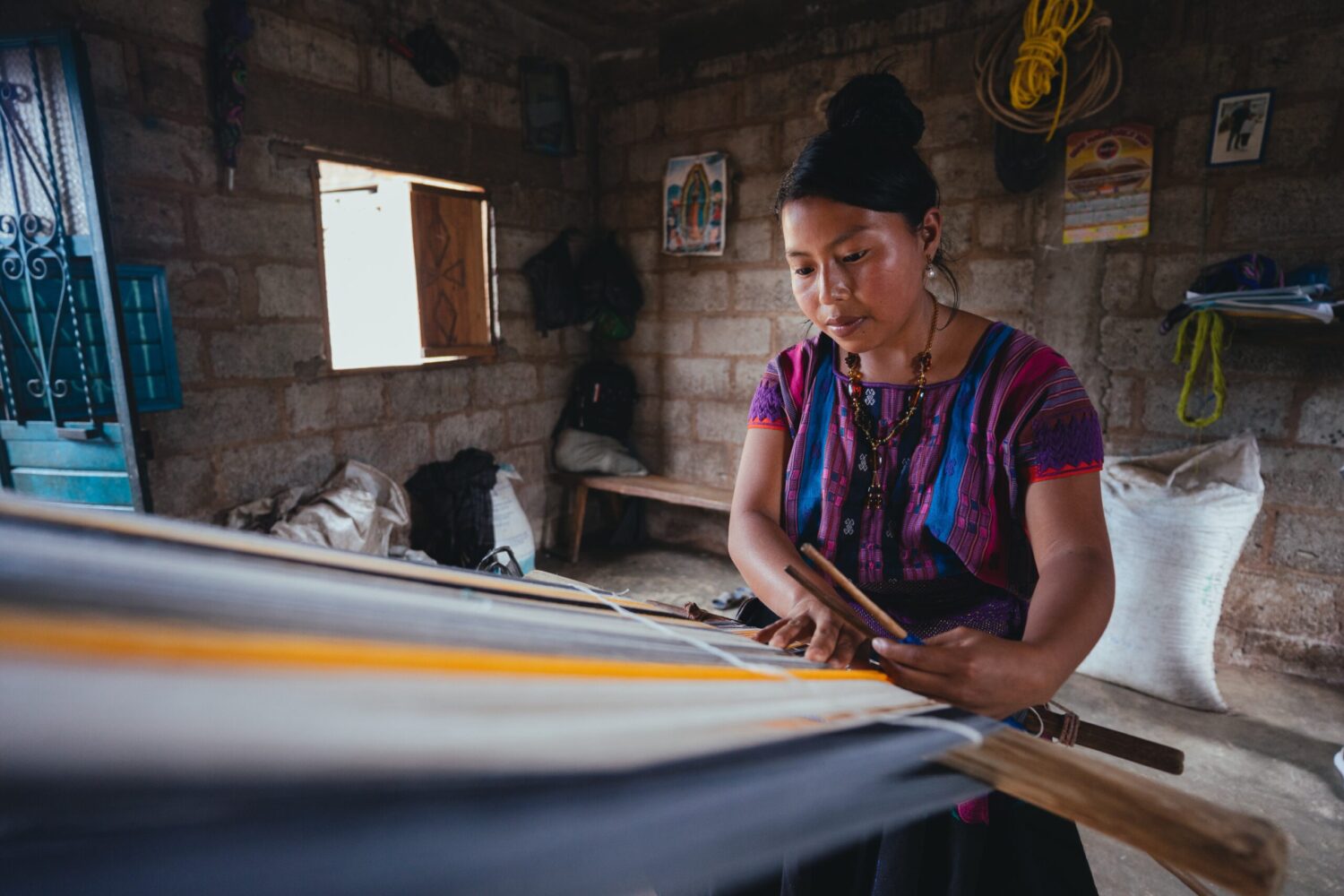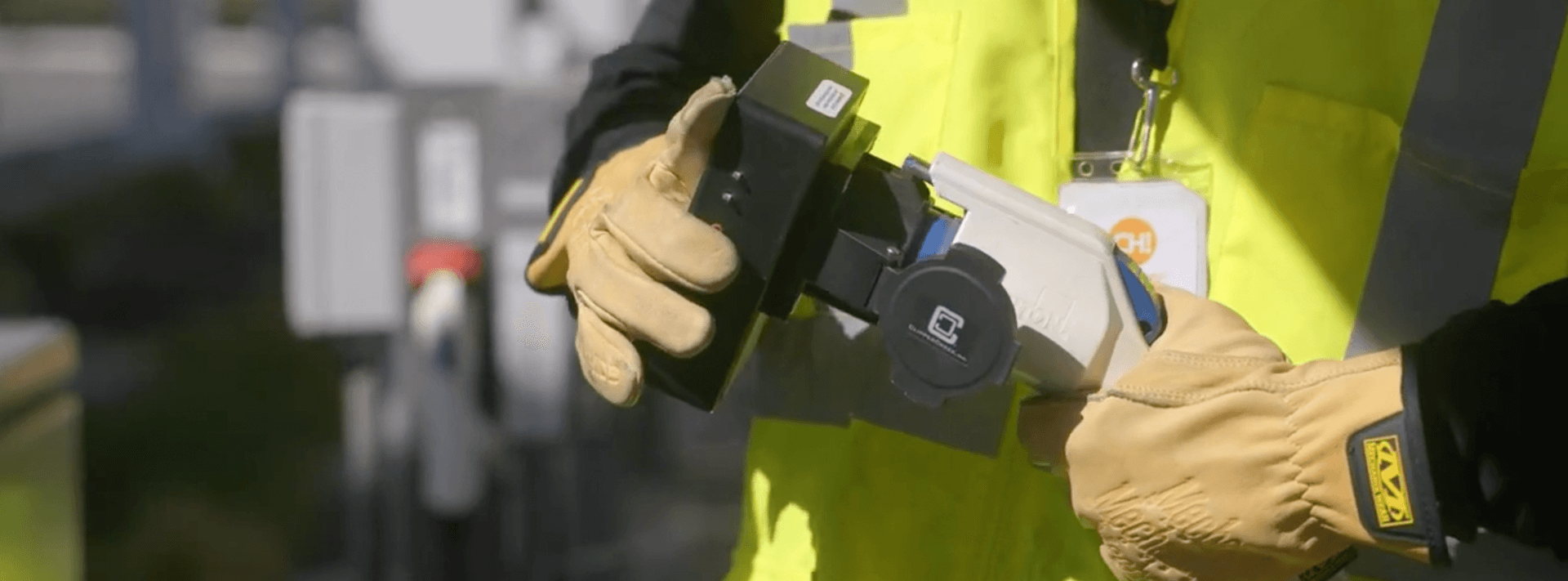ImpactAlpha, November 7 – Much of the heavy lifting on Sustainable Development Goal 8 (decent work for all) will fall to policymakers. But impact investors see plenty of opportunity to use capital as a lever for livelihood resilience, small business growth, good jobs and worker upskilling. On this month’s Liist of impact funds that are actively raising, livelihoods is the cross-cutting theme.
US-based JFF Ventures has the clearest link: the venture arm of nonprofit Jobs for the Future invests in tech companies supporting worker upskilling and economic opportunities for low- and middle-income earners, particularly youth, veterans, women, immigrants and people of color.
In Spain, youth employment and opportunities is a core investment theme for Q Impact, which invests across Southern Europe.
Advance Global Capital in London provides working capital and trade financing to small and growing businesses in emerging markets, which are the backbone of their local economies, key job creators, and have an annual appetite for roughly $5 trillion in debt and equity. Its portfolio of financial partners serves costume makers in Colombia, food businesses in Romania, and media producers in Botswana.
Teranga Capital in Senegal is investing across the small business spectrum in francophone West Africa, from informal and microfinance businesses to tech-focused startups.
Netherlands-based Grounded Investment Company writes small equity checks to financially underserved East African agri-processing companies, which work with smallholder farmers. The women-led firm links its own cut of investment profits to its impact achievements.
In the US, farmland investor Fractal Agriculture also ties its compensation to impact outcomes, such as improved soil and water quality resulting from farmers’ shift to regenerative techniques.
Altree Capital in South Africa is part of a small but growing crop of fund managers that are building investment strategies with both a gender and climate lens. Four of the seven funds on this month’s Liist have female partners.
Disclaimer: The Liist and this post are based on available information, sourced by ImpactAlpha. Information has not been further reviewed by the managers nor verified by third parties, is not guaranteed for accuracy or completeness, and should not be relied upon as investment advice or recommendations. Nothing in The Liist, this post or on ImpactAlpha.com shall constitute an offer to sell or the solicitation of an offer to buy securities.
Advance Global Capital
The London-based investment firm facilitates working capital and trade financing as a means to support small businesses in emerging and middle-income markets. The firm extends $2 million to $3 million loans to lending partners meeting businesses’ short-term capital needs while getting orders ready for customers.
Its portfolio of financial partners has served a plant-based food company in Romania, Carnaval costume and parade designers in Colombia, and an independent media producer in Botswana, among many other small businesses. The firm works with upwards of 50 partners and emphasizes financial inclusion for women-led businesses.
Its Delaware-domiciled fund has notched $165 million toward a $500 million target. The fund is set up using a master-feeder fund structure.
“We all want attractive returns, but we’re more interested in steady and consistent growth over time,” the firm states on its LinkedIn page. “Our investment partners respect this philosophy, and understand that the longer their money is with us, the more small businesses and local economies it can change.”
The strategy, the company says, “encourages responsible and sustainable profitability for investors, our partners, and small businesses worldwide.”
Contact Sudha Bharadia for more information.
Altree Capital
Mauritius-based Altree Capital invests in women-owned, -led and -focused companies whose products and services support climate adaptation and resilience in Africa.
“Women are at the nexus of climate change, but most importantly, they are also the innovators and early adopters of climate mitigation solutions and strategies,” the women-led firm says. When it comes to climate action, “women are a benefit multiplier and should have a seat at every table.”
The first-time fund manager will cut growth-stage checks of $100,000 to $5 million to startups and small businesses using a mix of equity, debt, mezzanine, and revenue-based investments.
Altree secured a grant from the Visa Foundation to warehouse deals for its Altree Kadzi Gender Climate Fund. It’s made two investments so far, including Rwanda-based Kasha, an online retailer of female healthcare products and other consumer goods. Two more deals are in the works.
Companies must meet one of the 2X criteria for gender to be considered for investment.
Contact Jenni Chamberlain for more information.
Fractal Agriculture
There are more than 250 million acres of row-crop farmland in the US (think corn, soy, wheat). Fractal Agriculture supports row-crop farmers in the transition to regenerative practices.
Fractal provides 10-year equity financing to farmers by taking a minority stake in their land. Its average investment size is $400,000. Farmers can buy back Fractal’s shares after two years as their land appreciates in value, or rollover the investment at the end of the term.
The firm is raising a traditional closed-end equity fund with a target of $75 million.
Fractal offers farmers an increasing discount on the cost of its capital the longer they deploy regenerative techniques. The firm’s own profits are linked to improvements in soil and water quality and greenhouse gas emissions.
Contact Aaron Desatnik for more information.
Grounded Investment Company
The Netherlands-based impact investing cooperative invests in small and early-stage agri-processing companies in remote parts of East Africa.
“Processing companies are well-positioned in the [agricultural] value chain, with the economic heft to generate tangible impact for thousands of farmers,” the women-led organization says. Such companies lack access to mainstream capital.
Grounded cuts equity checks of up to €300,000, setting companies up for growth funding. It can make follow-on investments of up to €1 million.
Grounded operates an evergreen fund that is open to investors on a rolling basis. It has so far raised €2.5 million from the Doen Foundation and private investors.
Grounded’s own cut of returns from the fund are linked to its impact performance, putting it among the minority of impact funds that use some form of impact-linked compensation. Among the metrics it tracks: farmer incomes, agri-processors’ margins, use of regenerative farming practices, and amount of regeneratively-farmed land.
Contact Thekla Teunis for more information.
JFF Ventures
Jobs for the Future is a national nonprofit in the US that focuses on higher education and workforce development. Its venture arm, JFF Ventures, is raising its second investment fund to invest in early-stage tech companies supporting the economic advancement of underserved, low- and moderate-wage earners—particularly women, veterans, young people, immigrants and people of color. It focuses in particular on founders from the backgrounds and communities they’re serving.
Portfolio companies include ChargerHelp, a South LA-based company that’s building a pathway to the middle class by training individuals as electric vehicle charging technicians. CareAcademy offers home healthcare workers skills training on their mobile phones. 180 Skills provides online training to boost the manufacturing workforce.
JFF Ventures is raising a $50 million second fund with an eye to making 30 to 35 seed and pre-seed-stage investments of up to $1 million. Jobs for the Future is a limited partner in the fund.
A portion of the fund’s carry will flow back to Jobs for the Future to support its programmatic work. J
FF Ventures says its first fund directed $11 million in capital to 46 companies, which have created more than 10,000 jobs and reached 20 million workers.
Contact Sabari Raja for more information.
Q Impact
Q Impact invests in growth-stage startups and small businesses in Southern Europe that are supporting the region’s transition to a green and inclusive economy. The Madrid-based firm is the impact investing arm of the €3 billion asset management company Qualitas Equity.
Q Impact is raising its second fund with a target of €120 million to cut equity checks of €5 million to €15 million in companies addressing youth unemployment, rural development, mental health, the circular economy and carbon emission reduction. The firm has raised half with backing from the European Investment Fund and other investors.
Q Impact has made three investments from its second fund. Portugal-based Psicoespaço provides mental health diagnosis, treatment and support for young people. Bioenergy Iberica in Spain develops biogas and solar projects. Inagroup, also in Spain, makes organic crop treatments.
Since launching in 2020 with €35 million fund, it has made 10 investments and notched two exits. Its portfolio impact milestones: more than 500 million people with disabilities employed; more than 900 youth completed vocational training; nearly 3,000 homes transitioned to solar energy.
Contact Pablo Valencia for more information.
Teranga Capital
Senegal-based Teranga Capital invests in small businesses and startups across francophone West Africa, including greatly underserved markets like Guinea Bissau. Teranga invests across the small business spectrum backing informal and microfinance businesses on up to tech-focused startups. It provides revenue or profit-sharing-based financing, equity, quasi-equity, and mezzanine debt in checks of $100,000 to $1 million.
“We blend the model because we’ve adapted risk capital to local needs,” Teranga’s Olivier Furdelle told ImpactAlpha in an interview last year.
The firm is raising its first fund with a target of $10 million. The open-ended fund has secured $7 million.
Two-thirds of Teranga’s early portfolio are women-led enterprises, including food processor Fruitales, clothing manufacturer Fa Confection by Naty, and furniture company Frija Décor. Fresh produce trading platform Afrikamart, catering company Nowelli, publishing company Vallesse Editions, and waste management company SetTIC are also run by female founders.
Contact Olivier Furdelle for more information.











